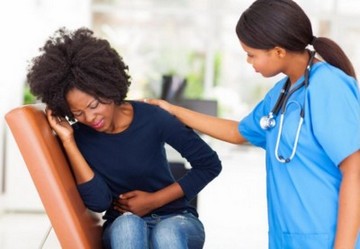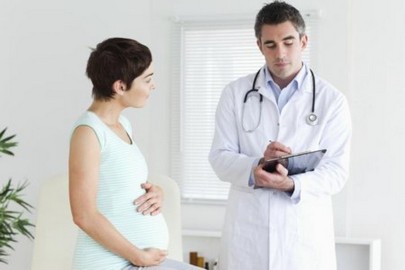Stomach Cramps During Pregnancy

Contents:
- Causes of Stomach Pain During Pregnancy
- Diagnosis of Pain in the Stomac
- Prevention and Treatment of Stomach Pain During Pregnancy
Stomach Cramping During Pregnancy
Most pregnant women suffer from pain in the stomach. It can be caused by heartburn, nausea, upset stomach, swelling and result in spasms and acute pain. How to avoid stomach pain?
What treatment is efficient, is it safe for the baby? These are the most common questions that expectant women ask themselves.
Causes of Stomach Pain During Pregnancy
The main causes of stomach pain during pregnancy:
- The most innocent reason that causes a little pain in stomach during pregnancy is the growing uterus. The growing uterus takes more place and “shifts” other organs, the organs of gastrointestinal system are not an exception. Of course, in this situation the stomach feels discomfort and starts aching.
- During pregnancy, increased levels of progesterone can cause discomfort in the stomach, this hormone can relax the intestines that leads to heartburn and bloating. However, these are not the only factors that cause gastric discomfort; there are other more serious reasons.
- Pain in the stomach can be caused by overeating, indigestion, constipation or physical fatigue, which provokes tension in the muscles of the abdomen. Stomach pain during pregnancy can be caused by allergic reactions, any injury or previously experienced emotional stress.
- Discomfort in the digestive tract accompanied by cramps, diarrhea, vomiting may be a sign of a viral or bacterial infection. Symptoms of an infection may take from one to three days to manifest. Ordinary flu or pneumonia in pregnancy can easily provoke stomach pain.
- Appendicitis rarely causes tension in the abdomen, pain, stomach cramps. In this case, you need immediately go to hospital.
- Pain syndromes in the stomach during pregnancy may be provoked by an old abdominal injury. Infected kidney, liver, bladder may also contribute to the development of pain in the stomach.
- Gastritis is a gastric disease caused by the inflammation of inner mucosa. This causes gastrointestinal dysfunction. If after eating you feel nausea, heaviness in the stomach, loss of appetite – you have a chronic gastritis. The acute form of the disease is followed by high temperature, vomiting and diarrhea.
- Peptic ulcers can cause acute pain in one area. It is a clear pain in the left hypochondria, not “vague” pain like in the case of gastritis. A typical sign of ulcer is vomiting that increases along with the pain. Compared to gastritis, ulcer pain appears when the stomach is empty. That is why the ulcer is also called «hunger disease". Ulcer, unfortunately, may flare up during pregnancy. Therefore, you should immediately seek help of a gastroenterologist.
Diagnosis of Pain in the Stomach

Detecting the first symptoms of stomach pain, you need to find out the cause of the outbreak and identify factors that can provoke it again. The pregnant woman should learn exactly when she experiences pain: before eating, during mealtimes or after. What makes the pain more pronounced: alkaline or acidic food?
You should talk about all of the sings mentioned above to a specialist, when he will have the complete picture of the disease and will be able to establish a correct diagnosis along with efficient treatment that will be safe for the baby.
Prevention and Treatment of Stomach Pain During Pregnancy
Naturally, gastritis, ulcer, infectious or bacterial diseases, as well as pain sensations in the gastrointestinal tract needs urgent consultation with a gastroenterologist. The doctor can help a pregnant woman assigning proper and effective treatment or taking preventive measures.
If you don’t have any of diseases mentioned above, you may take preventive measures yourself. What exactly to do? Preventive measures are based on a proper balanced diet. To eliminate stomach pain and discomfort in pregnancy, avoid food harmful for your stomach. Try to split meals. Instead of 2-3 meals per day, have 4-5 snacks. One standard serving can be divided into two meals.
Doctors recommend eating fresh fruits and vegetables, and eat pasta and pastries in smaller quantities. Cut consumption of peas, cabbage, beans as they contribute to gas generation in the gastrointestinal tract. Exclude fried, salty, and spicy food. Cook steamed meals: fish, meat, vegetables, baked potatoes, and other products.
The expectant mums can avoid medications to relieve stomach pain. You can turn to natural remedies (homeopathy). Experts advise pregnant women to take camomile broth, it stops inflammation and recovers useful microflora in the digestive tract.
Video: What Causes Stomach Cramps?